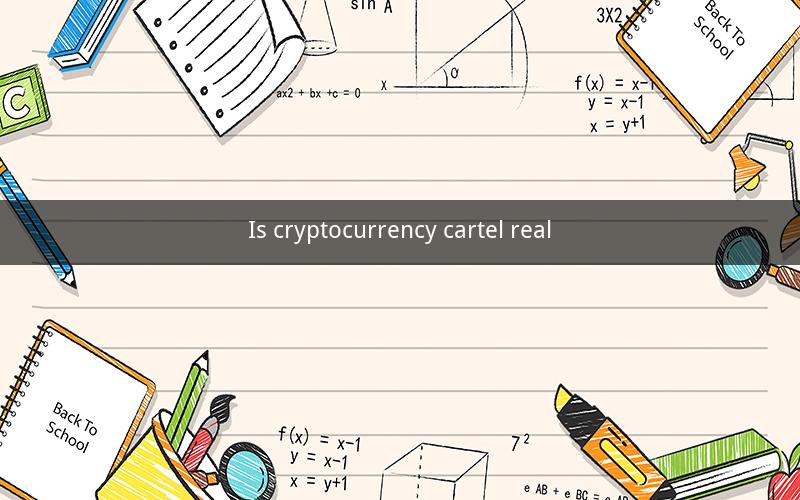
Directory
1. Introduction to Cryptocurrency Cartel
2. Definition and History of Cryptocurrency Cartel
3. Evidence and Indicators of Cryptocurrency Cartel
4. Cryptocurrency Market Dynamics and Cartel Impact
5. Legal and Ethical Implications of Cryptocurrency Cartel
6. Countermeasures and Preventive Measures against Cryptocurrency Cartel
7. Conclusion
1. Introduction to Cryptocurrency Cartel
Cryptocurrency cartels have become a topic of concern among investors and regulators alike. The debate over whether cryptocurrency cartels are real or not continues to gain momentum. In this article, we will explore the concept of cryptocurrency cartels, their definition, history, evidence, market dynamics, legal implications, and countermeasures.
2. Definition and History of Cryptocurrency Cartel
A cryptocurrency cartel refers to a group of individuals or entities that collaborate to manipulate the price of cryptocurrencies, thereby gaining economic benefits. The concept of cartels is not new and has been prevalent in various industries, including oil, aviation, and even legal professions. The history of cryptocurrency cartels can be traced back to the early days of Bitcoin, with allegations of price manipulation surfacing in 2014.
3. Evidence and Indicators of Cryptocurrency Cartel
Several pieces of evidence suggest the existence of cryptocurrency cartels. Some of these indicators include:
a. Price manipulation: Cryptocurrency prices have been manipulated in various instances, with suspicious patterns observed in trading volumes and prices.
b. High trading volume in major exchanges: Cartels often operate by creating a perception of demand, leading to high trading volumes on major exchanges.
c. Whales: The term "whales" refers to large cryptocurrency holders who have the potential to influence market prices. Their actions, such as buying and selling massive amounts of cryptocurrencies, could be indicative of a cartel's influence.
d. Correlated trading activities: Cartels may engage in correlated trading activities, where members synchronize their buy and sell orders to influence prices.
4. Cryptocurrency Market Dynamics and Cartel Impact
The cryptocurrency market is characterized by volatility and rapid price movements. Cryptocurrency cartels can significantly impact market dynamics by:
a. Distorting market prices: Cartels can manipulate prices to their advantage, leading to an uneven playing field for all market participants.
b. Reducing trust in the market: The presence of cartels can erode trust in the cryptocurrency market, potentially leading to decreased adoption and investment.
c. Undermining fair competition: Cartels can prevent fair competition by limiting the entry of new players and stifling innovation.
5. Legal and Ethical Implications of Cryptocurrency Cartel
The legal and ethical implications of cryptocurrency cartels are multifaceted. On one hand, cartels can be considered illegal under anti-trust laws, as they restrict competition and harm consumers. On the other hand, the nature of cryptocurrencies makes it challenging to regulate cartels effectively.
a. Legal implications: Cryptocurrency cartels can be subject to legal actions under anti-trust laws and other relevant regulations.
b. Ethical implications: The manipulation of market prices raises ethical concerns, as it can lead to unfair gains for some individuals or entities while causing losses for others.
6. Countermeasures and Preventive Measures against Cryptocurrency Cartel
To combat cryptocurrency cartels, several countermeasures and preventive measures can be implemented:
a. Enhanced regulatory framework: Governments and regulatory bodies can develop stricter regulations and enforcement mechanisms to combat cryptocurrency cartels.
b. Improved market transparency: Enhancing transparency in the cryptocurrency market can help detect and deter cartel activities.
c. Collaboration between regulators and exchanges: Strengthening collaboration between regulators and major cryptocurrency exchanges can improve the detection and prevention of cartels.
7. Conclusion
The question of whether cryptocurrency cartels are real or not remains a topic of debate. Evidence suggests that cartels do exist, with their impact on the cryptocurrency market and the legal and ethical implications being significant. To combat cryptocurrency cartels, it is essential to implement effective countermeasures and preventive measures. The future of the cryptocurrency market will largely depend on how well the industry can address the issue of cartels.
Questions and Answers:
1. What is a cryptocurrency cartel?
A cryptocurrency cartel refers to a group of individuals or entities that collaborate to manipulate the price of cryptocurrencies.
2. What evidence suggests the existence of cryptocurrency cartels?
Evidence includes price manipulation, high trading volumes in major exchanges, actions by whales, and correlated trading activities.
3. How can cryptocurrency cartels impact market dynamics?
Cartels can distort market prices, reduce trust in the market, and undermine fair competition.
4. What are the legal implications of cryptocurrency cartels?
Cryptocurrency cartels can be subject to legal actions under anti-trust laws and other relevant regulations.
5. How can governments and regulatory bodies combat cryptocurrency cartels?
Governments and regulatory bodies can develop stricter regulations, enhance market transparency, and collaborate with exchanges.
6. What is the role of major cryptocurrency exchanges in combating cartels?
Major cryptocurrency exchanges can improve detection and prevention of cartels by enhancing transparency and collaboration with regulators.
7. Can cryptocurrency cartels be prevented entirely?
While it is challenging to prevent cryptocurrency cartels entirely, implementing effective countermeasures and preventive measures can significantly reduce their impact.
8. How does the nature of cryptocurrencies make it challenging to regulate cartels?
The decentralized nature of cryptocurrencies makes it difficult to track and trace transactions, making it harder to regulate cartels.
9. What can individual investors do to protect themselves from cryptocurrency cartels?
Individual investors can stay informed about market dynamics, use reliable exchanges, and avoid participating in suspicious trading activities.
10. How can the cryptocurrency industry evolve to mitigate the risk of cartels?
The cryptocurrency industry can evolve by improving market transparency, fostering collaboration between regulators and exchanges, and promoting ethical practices.